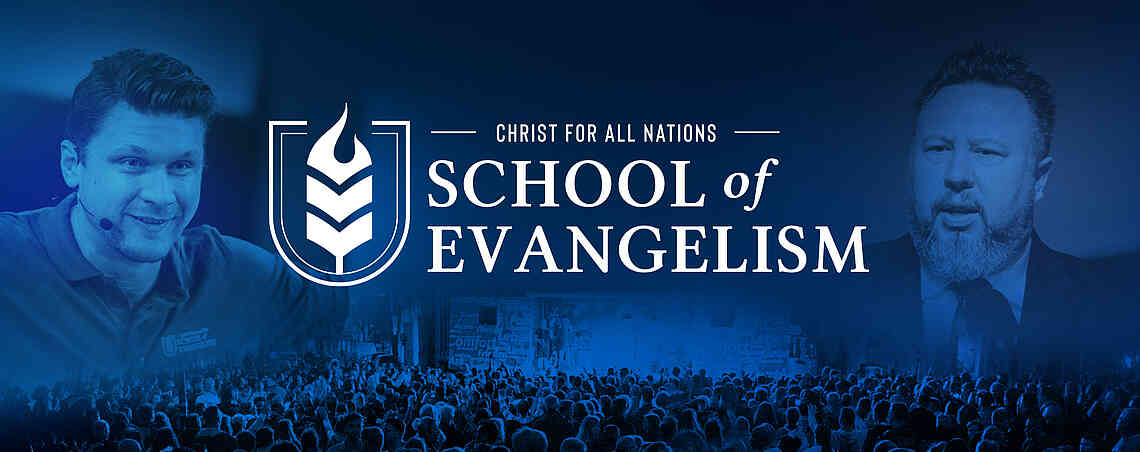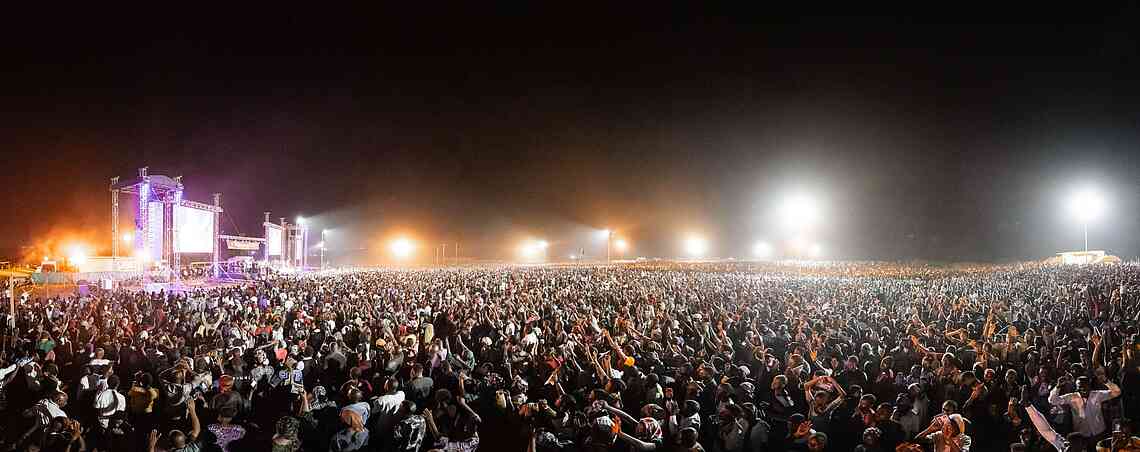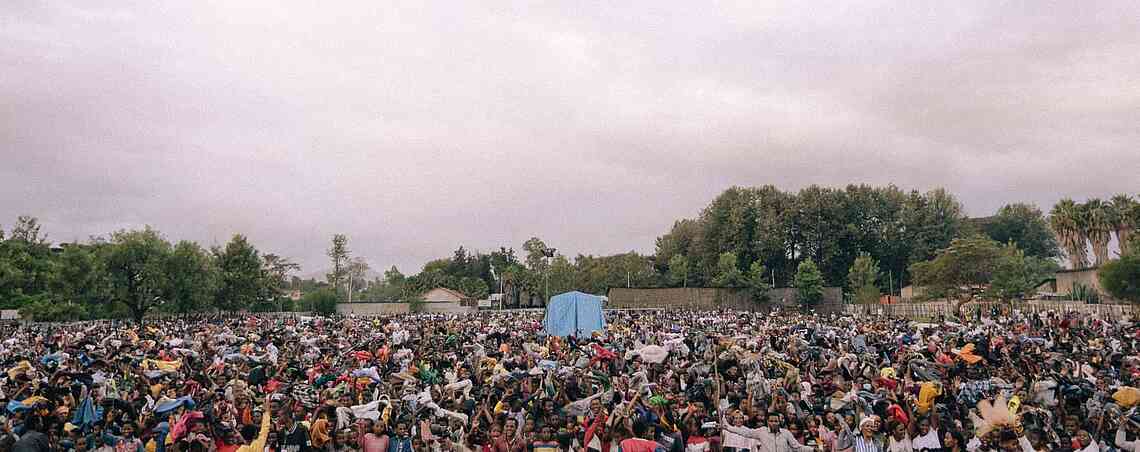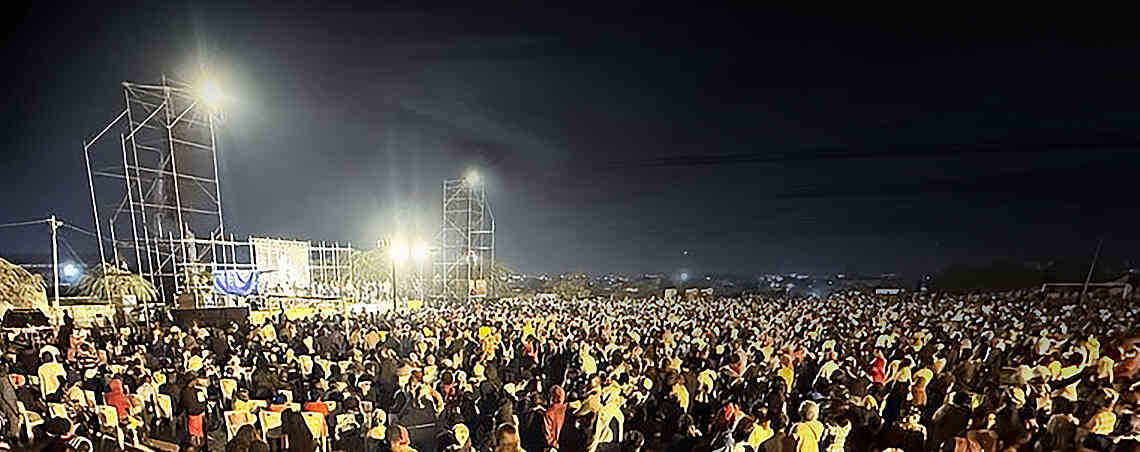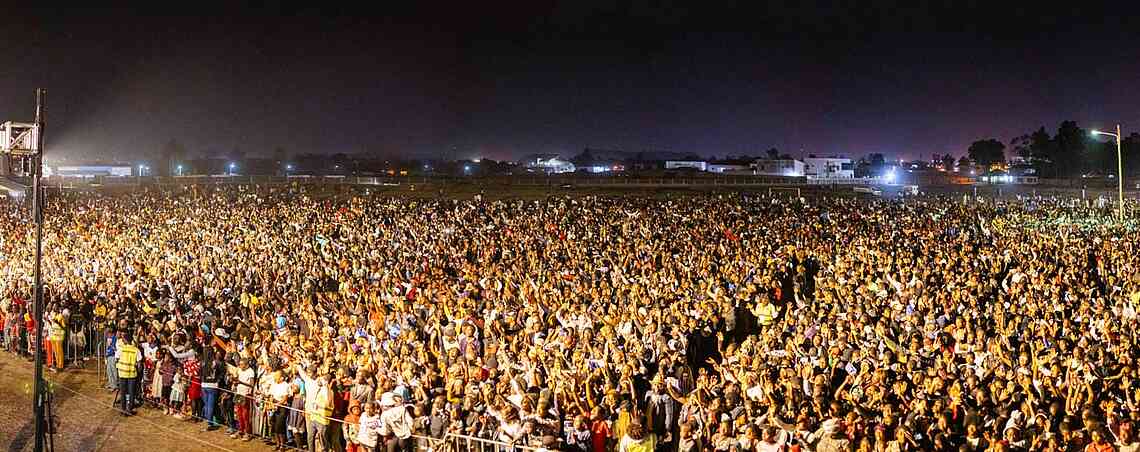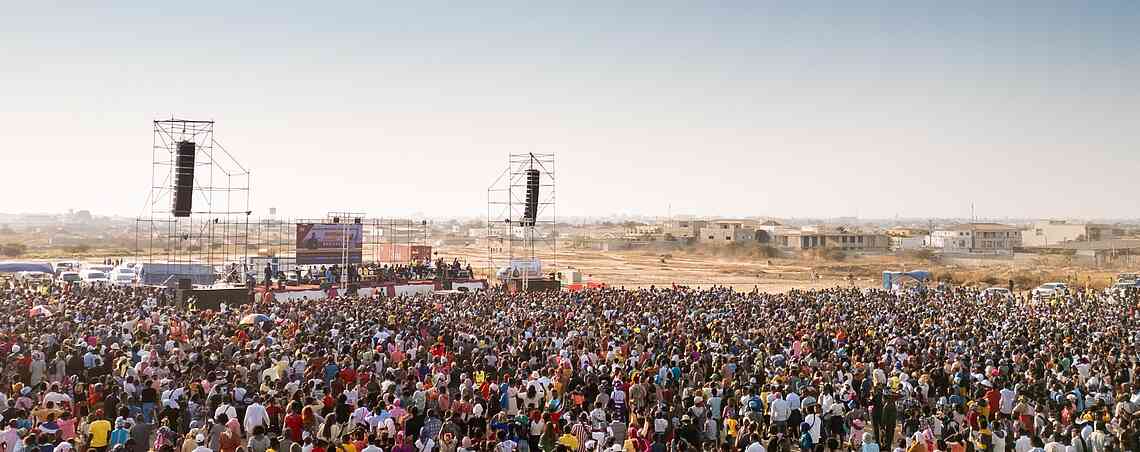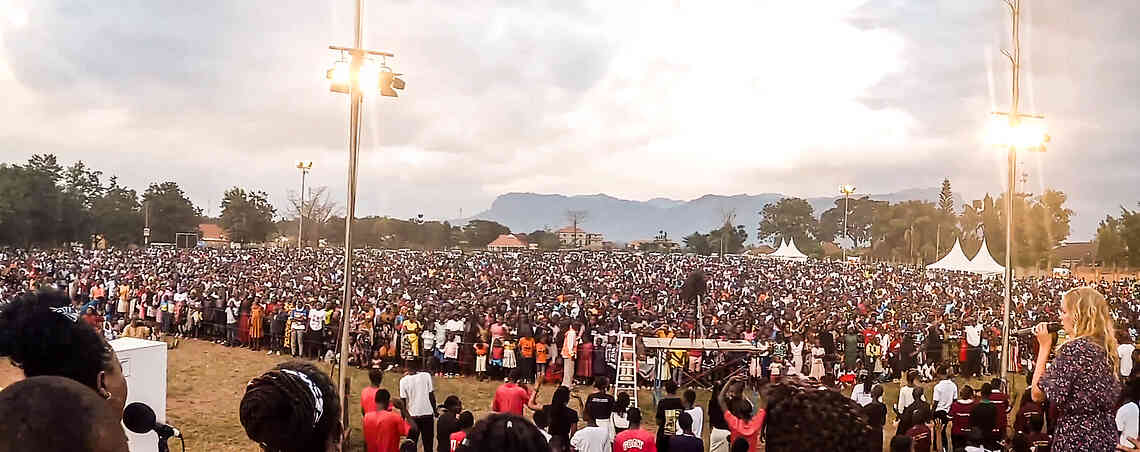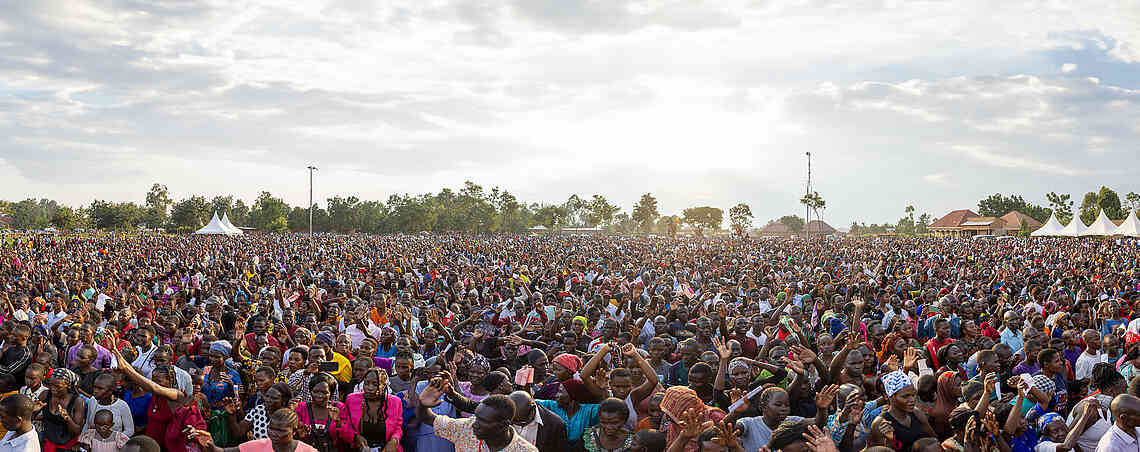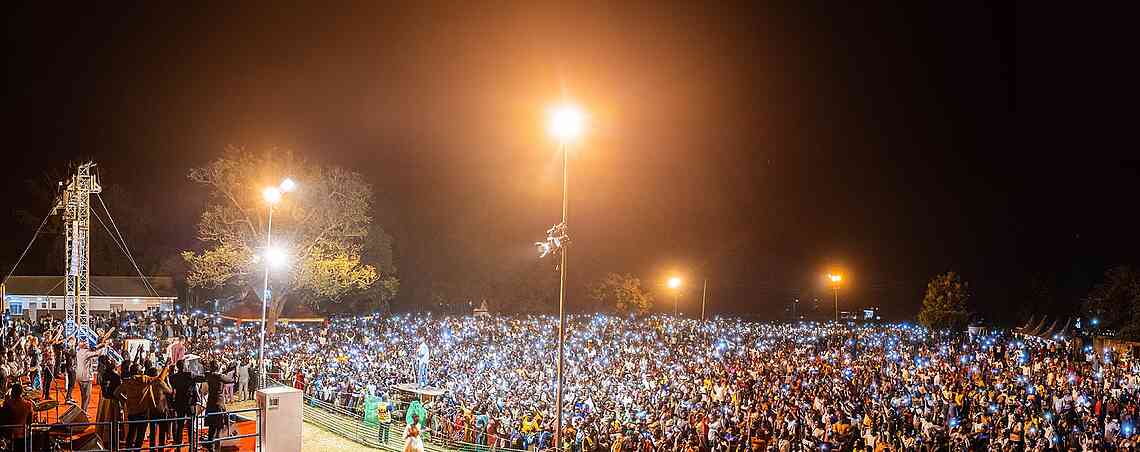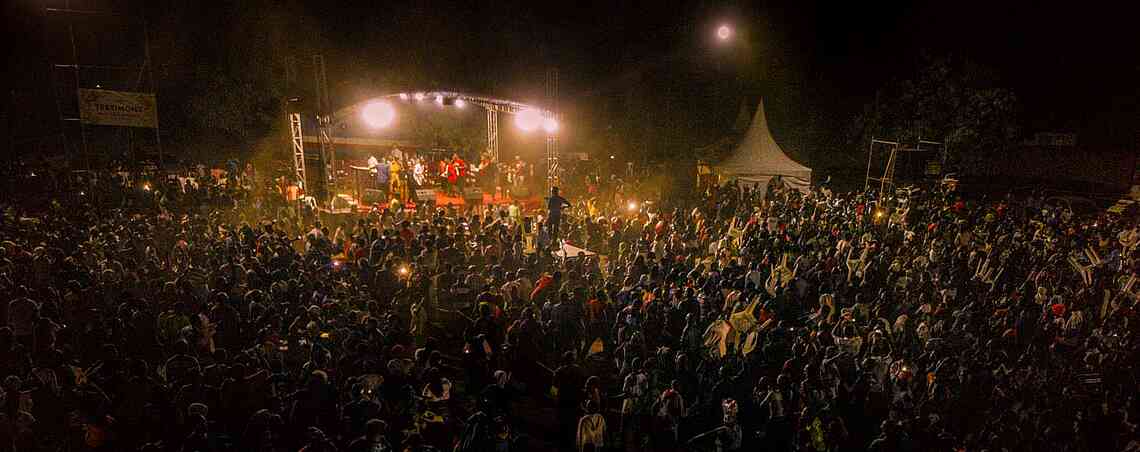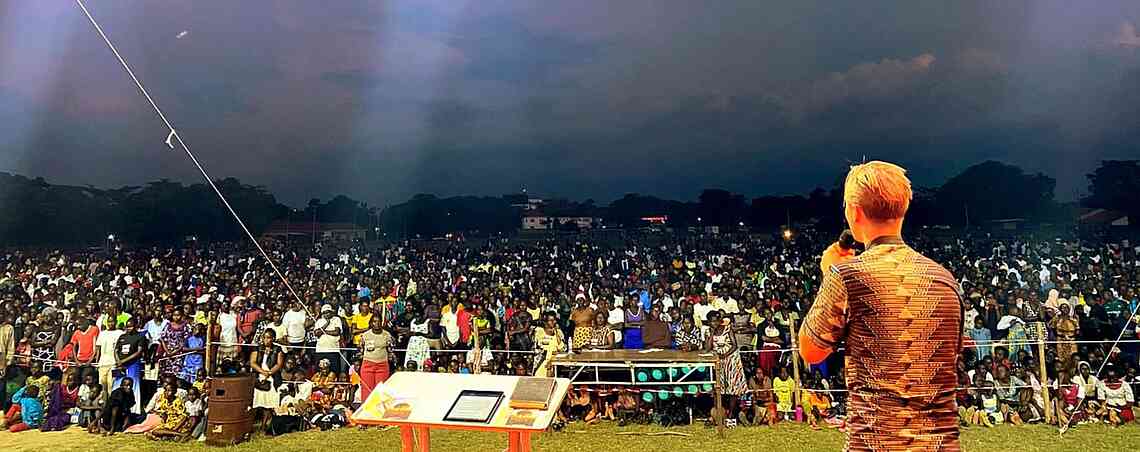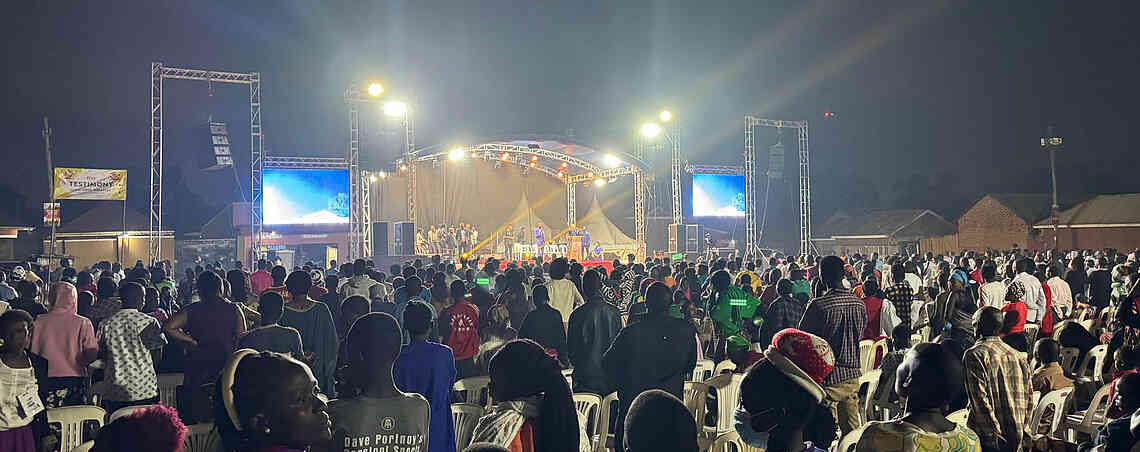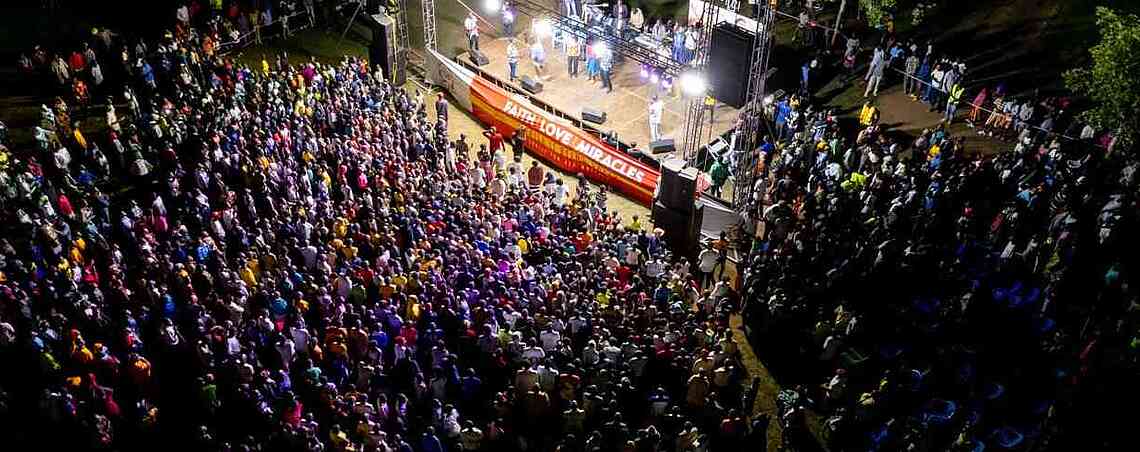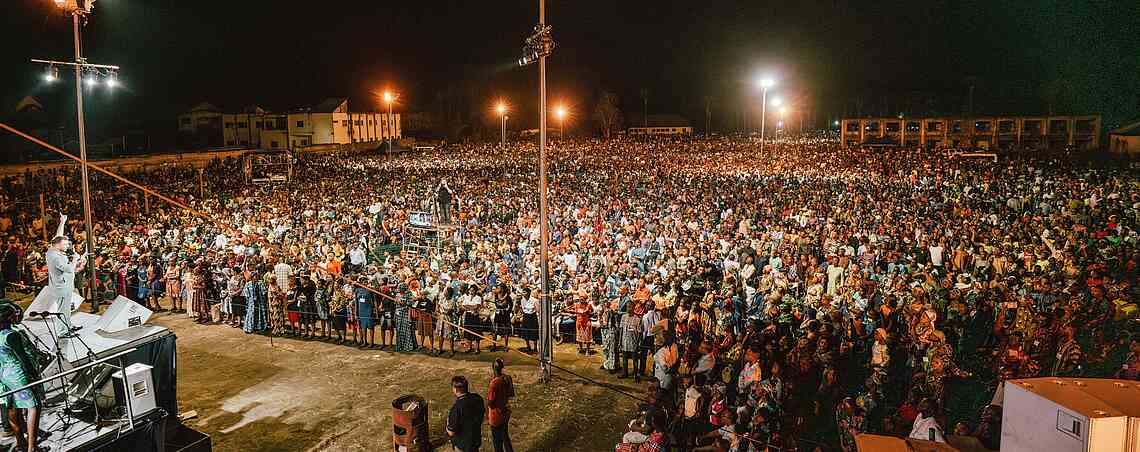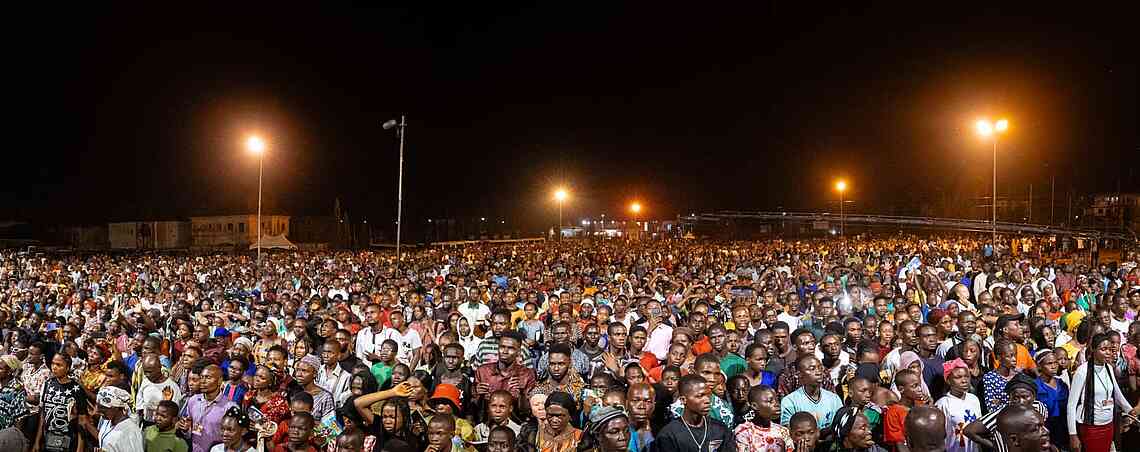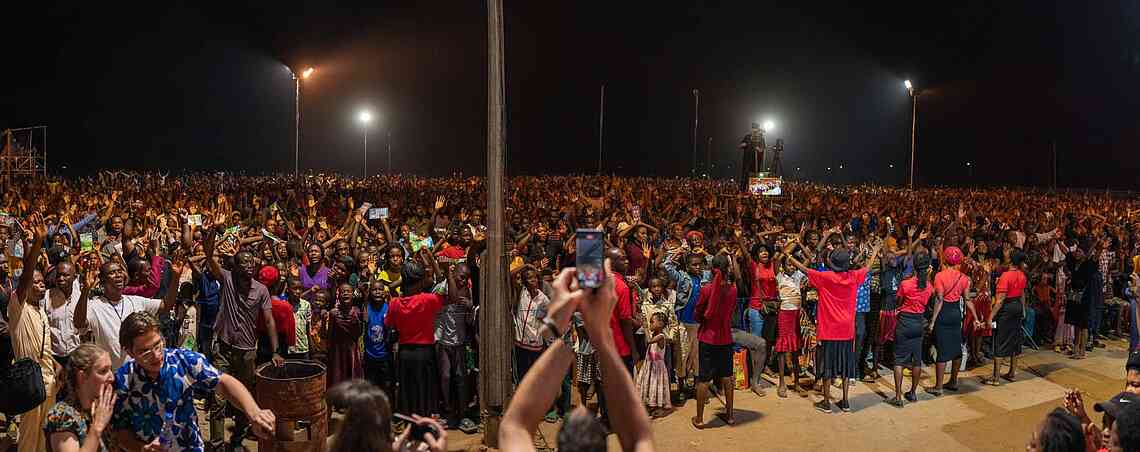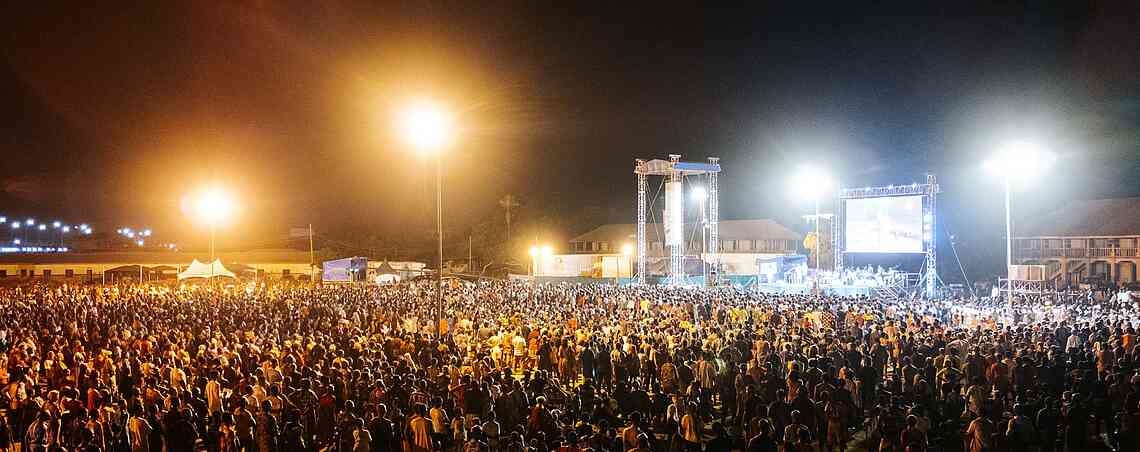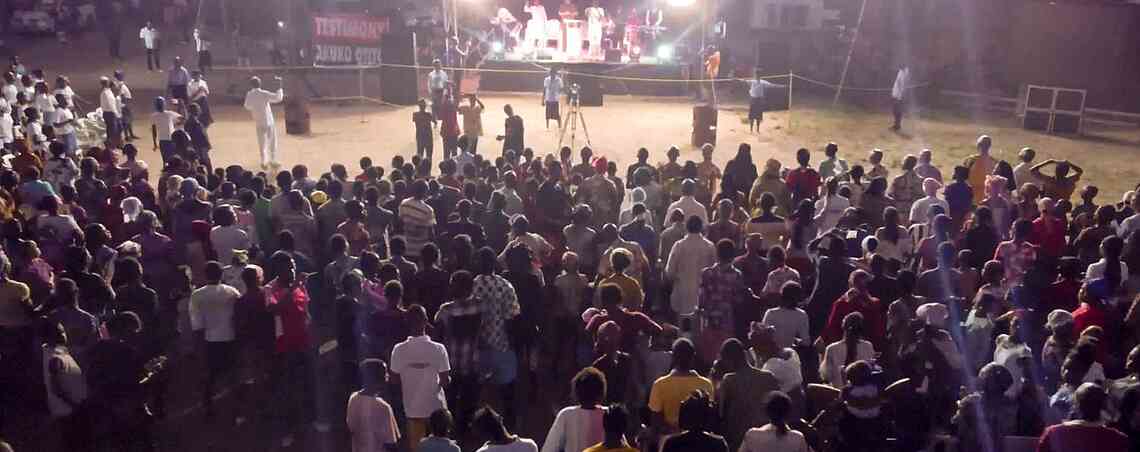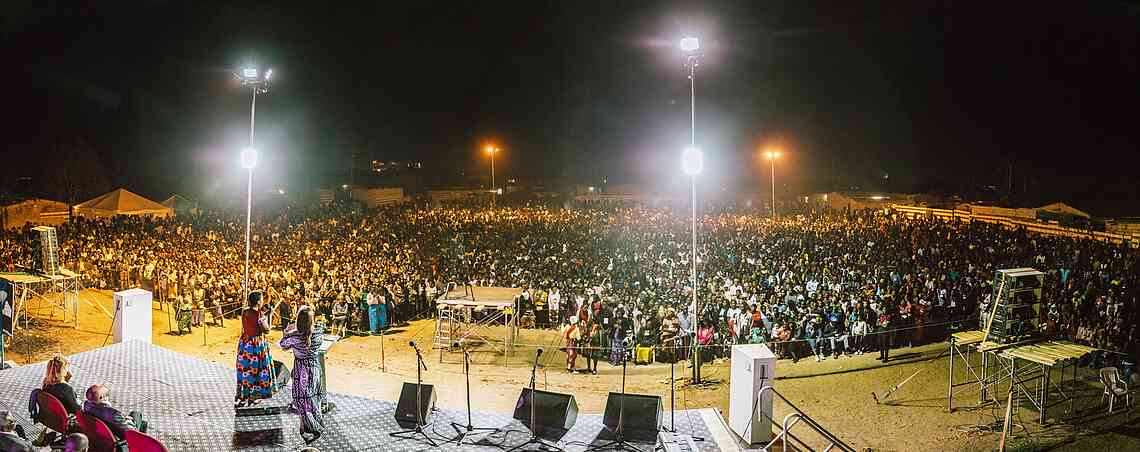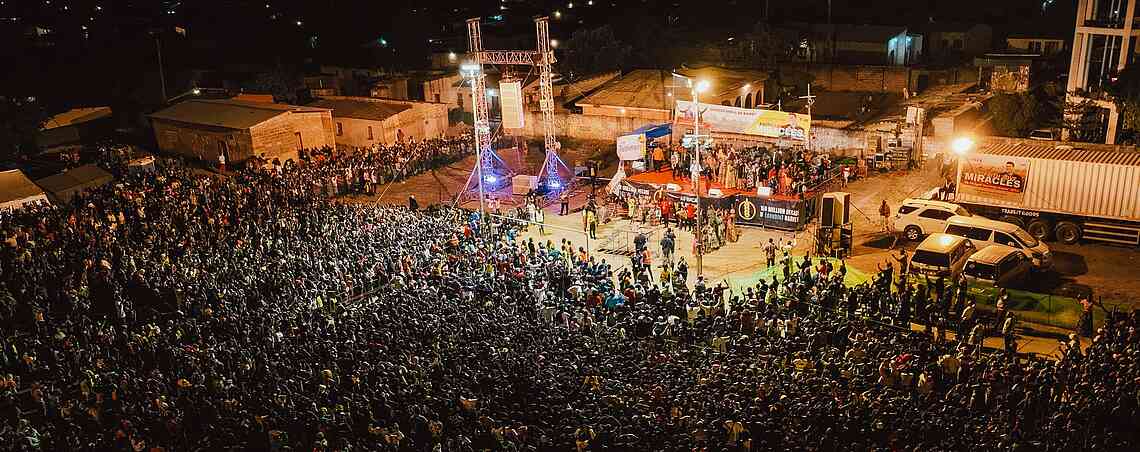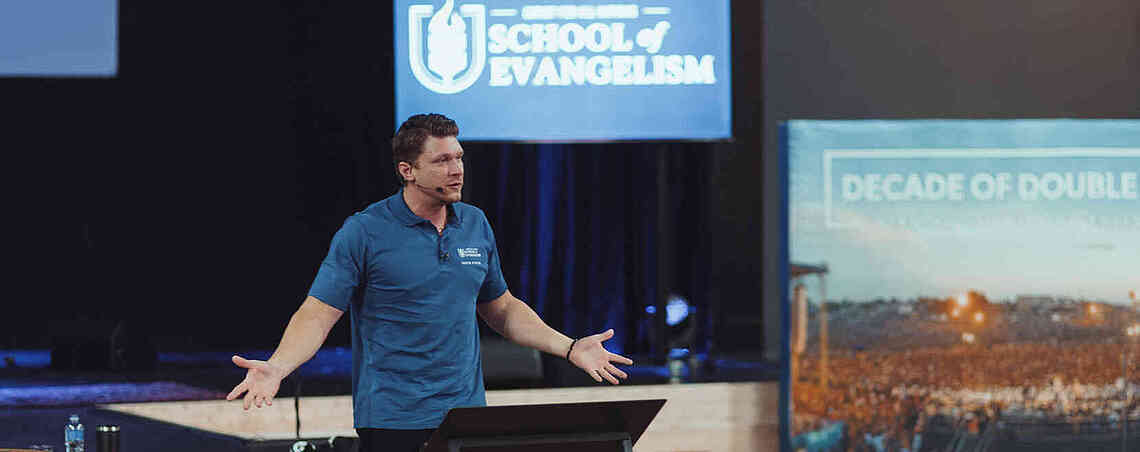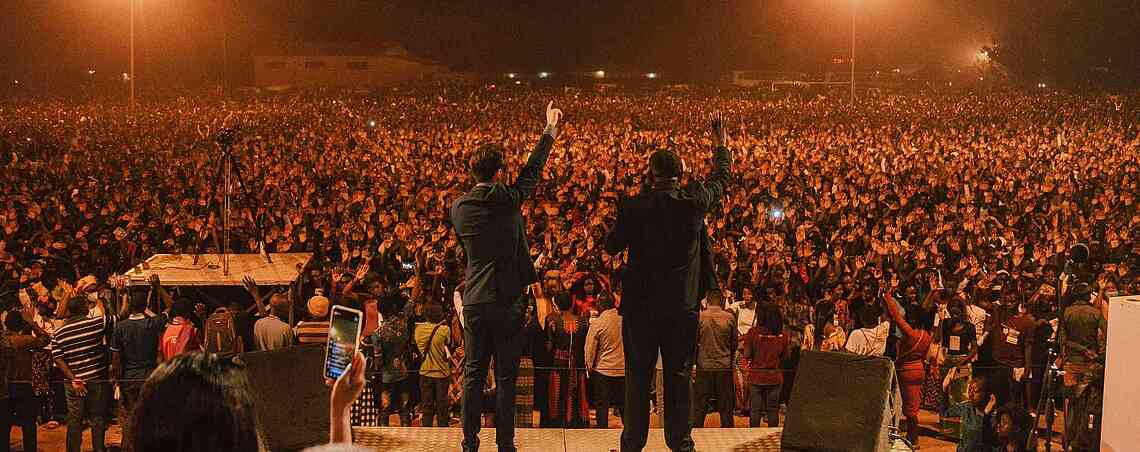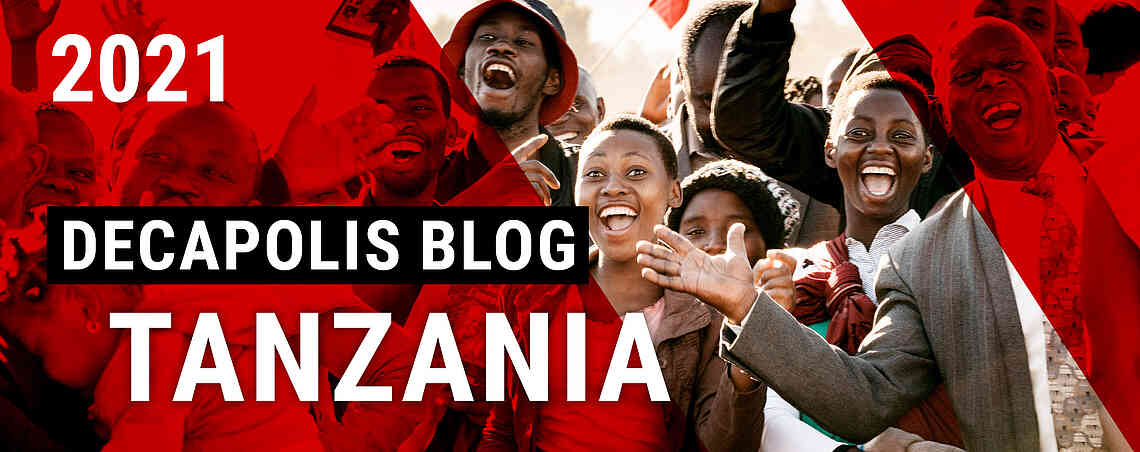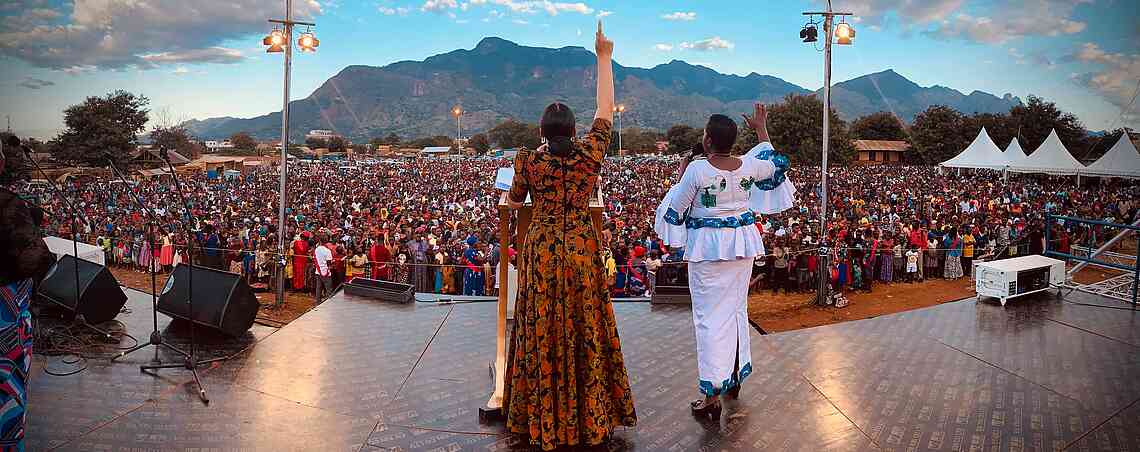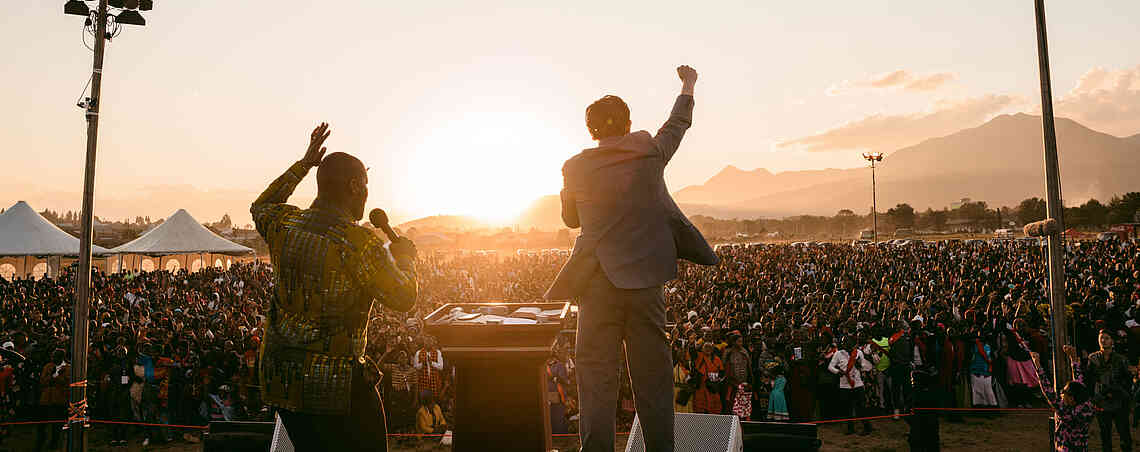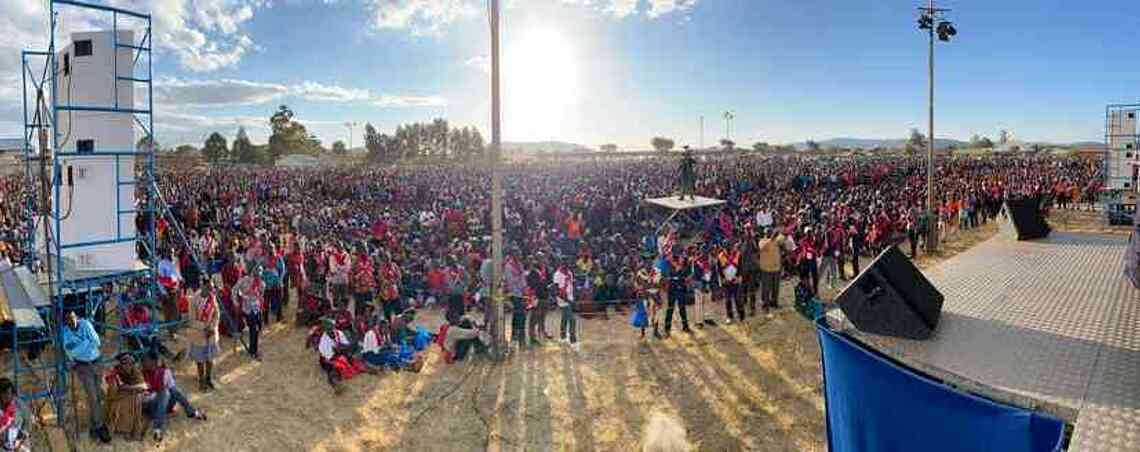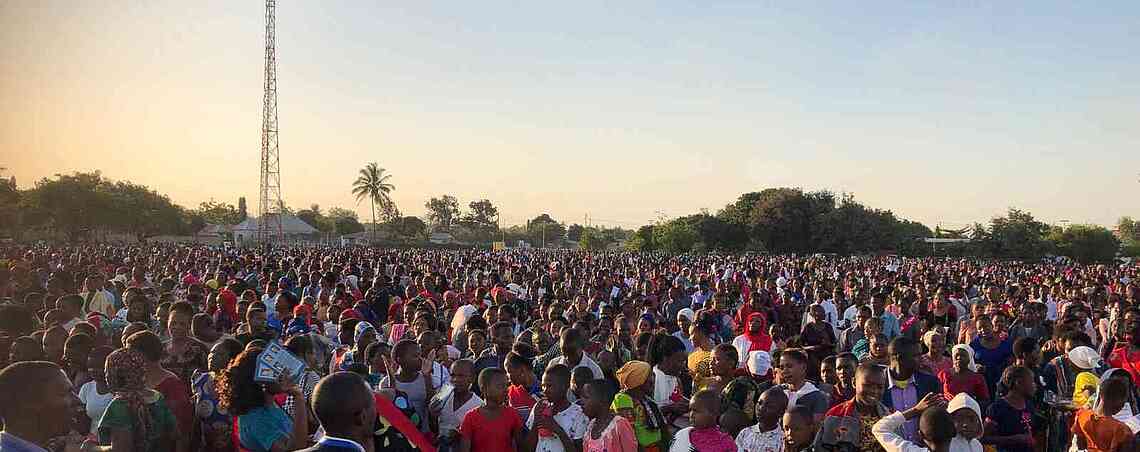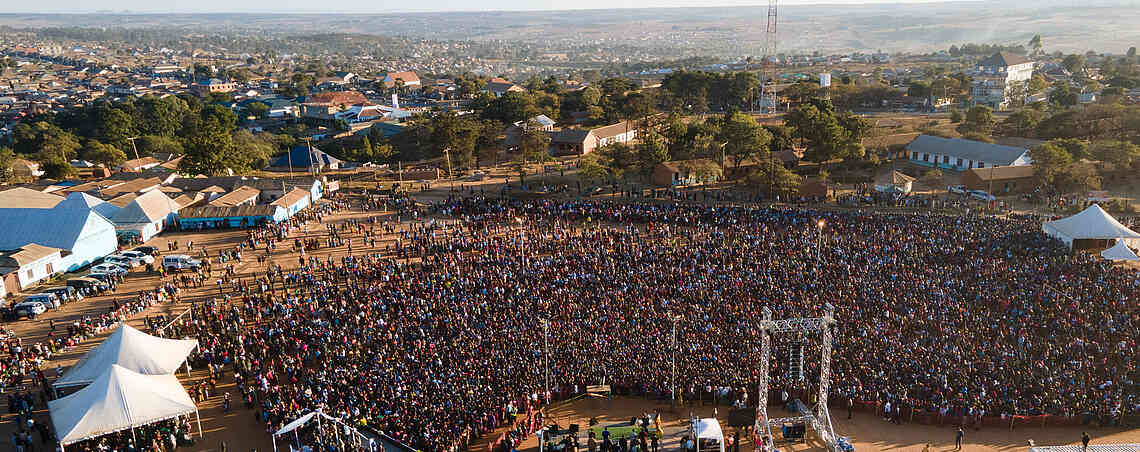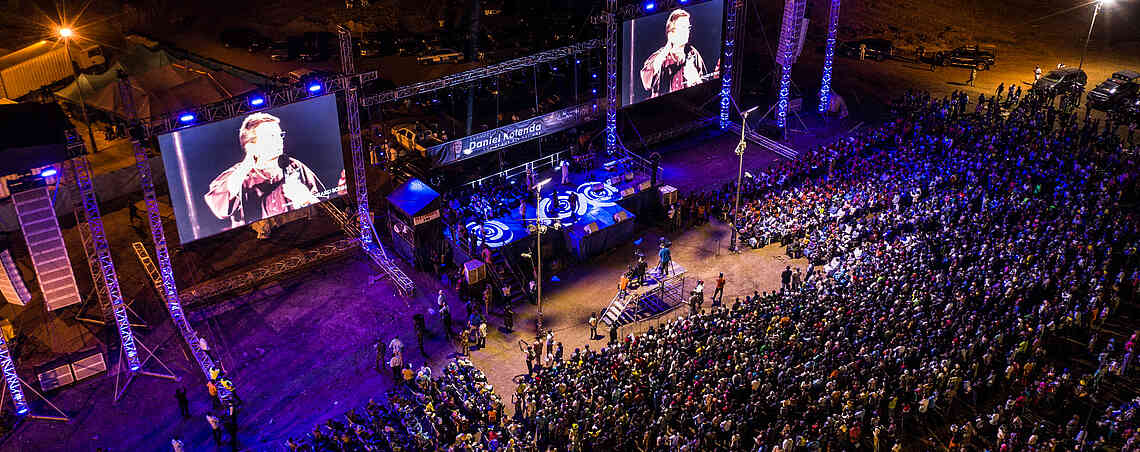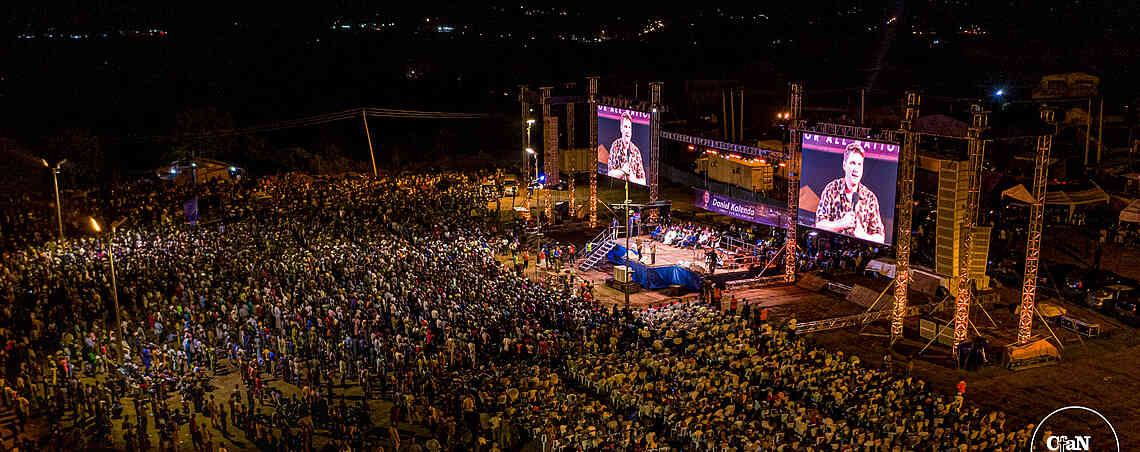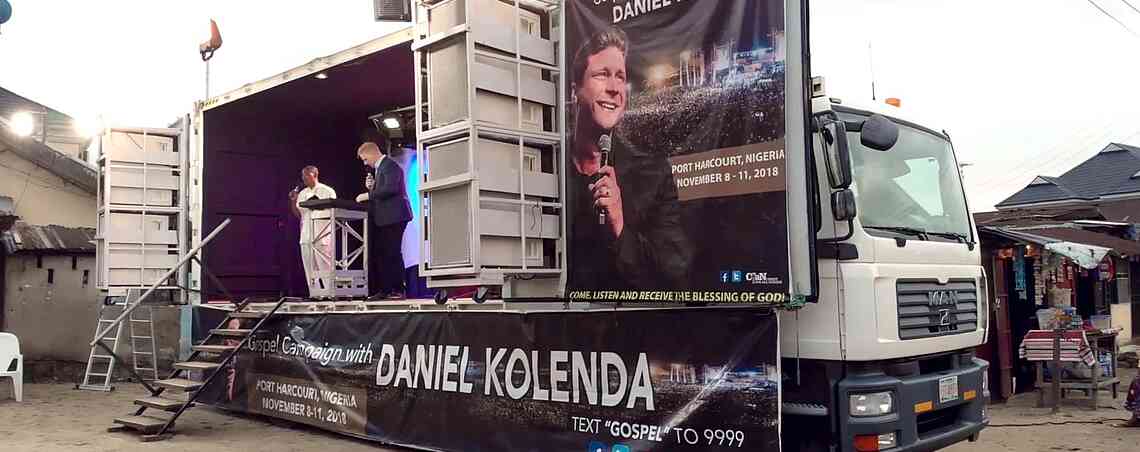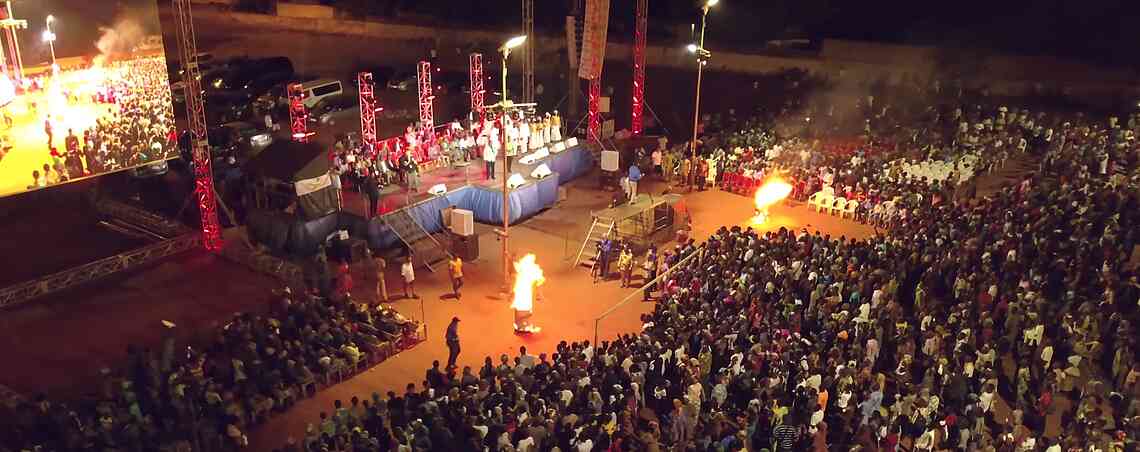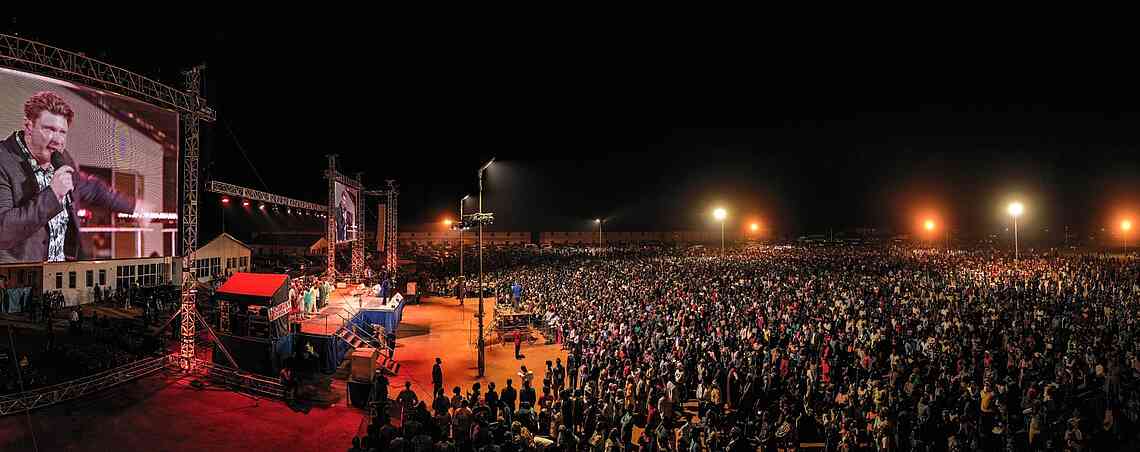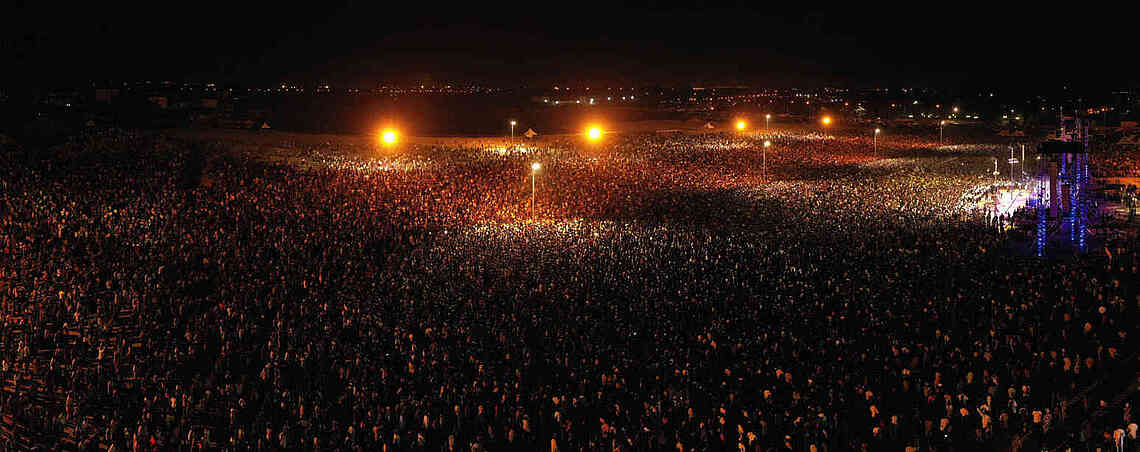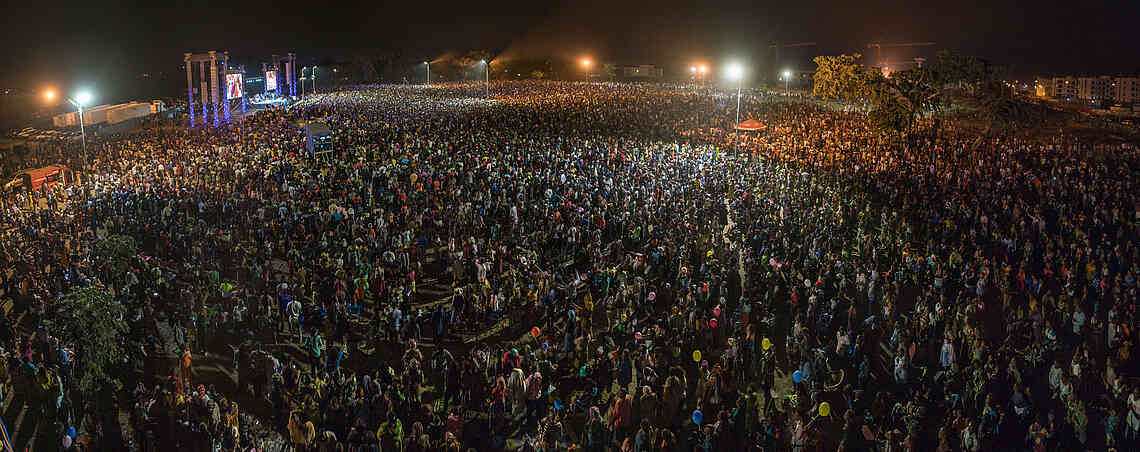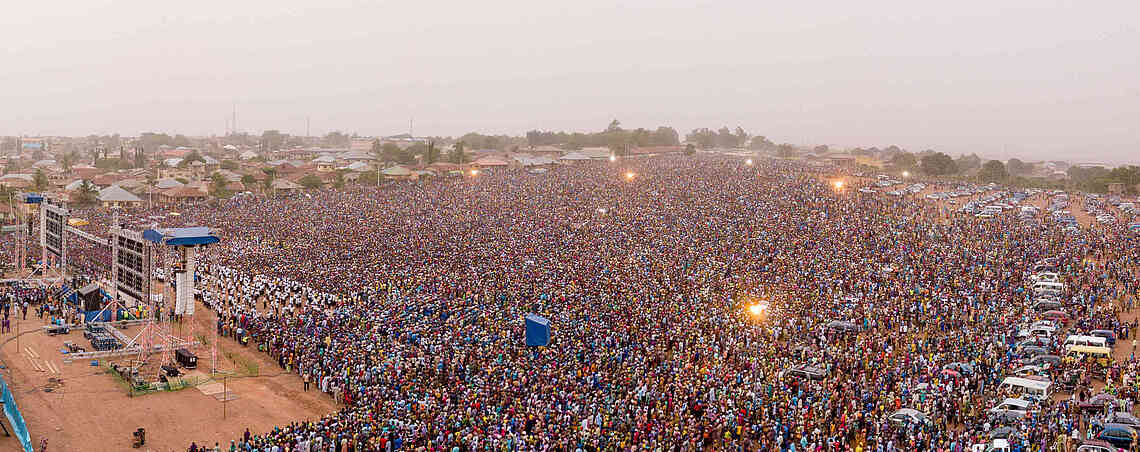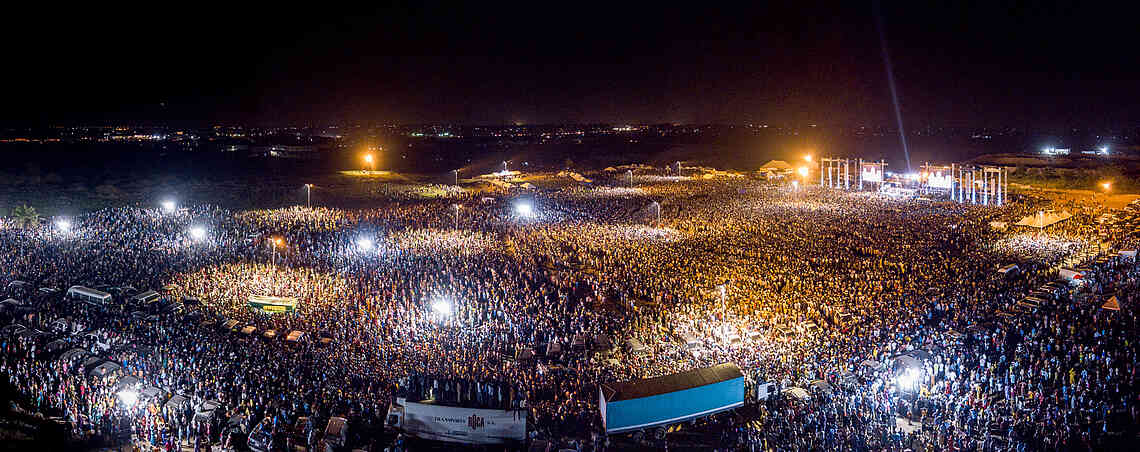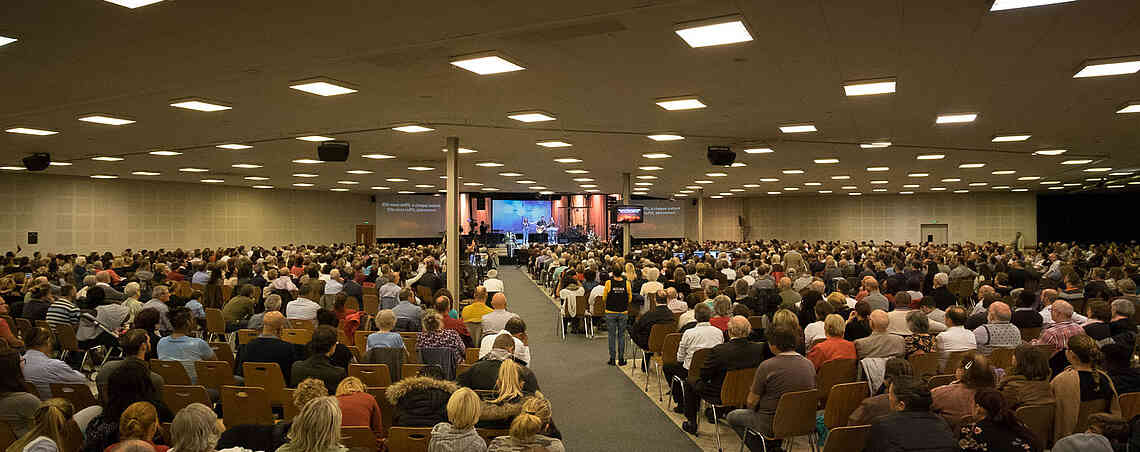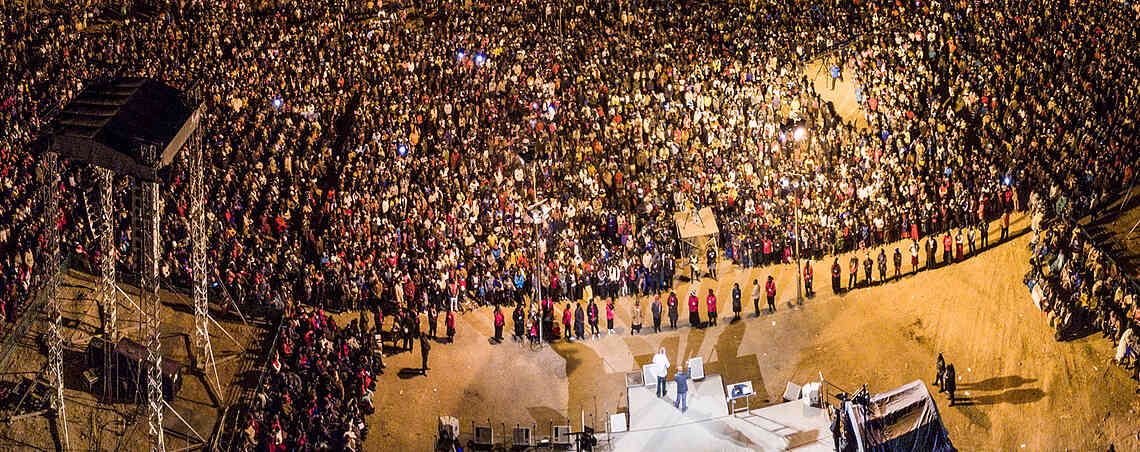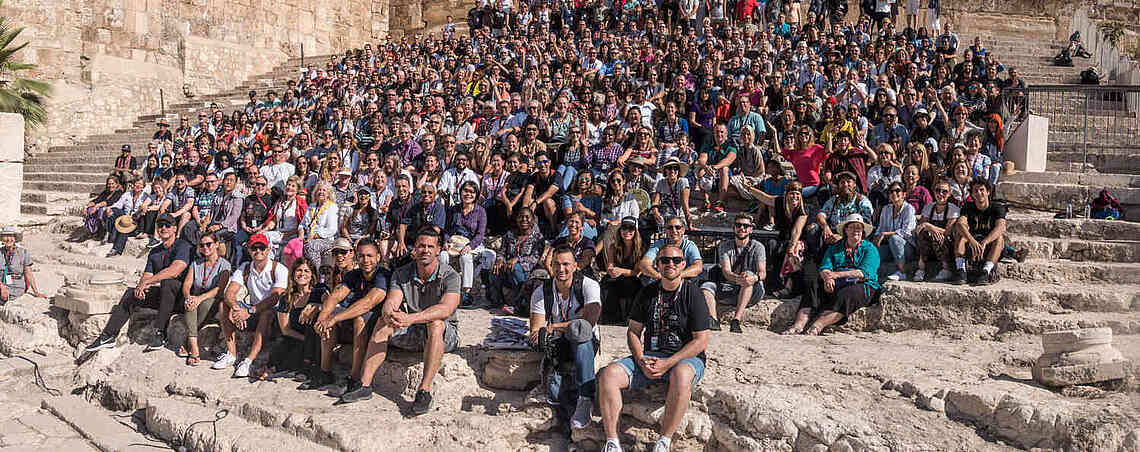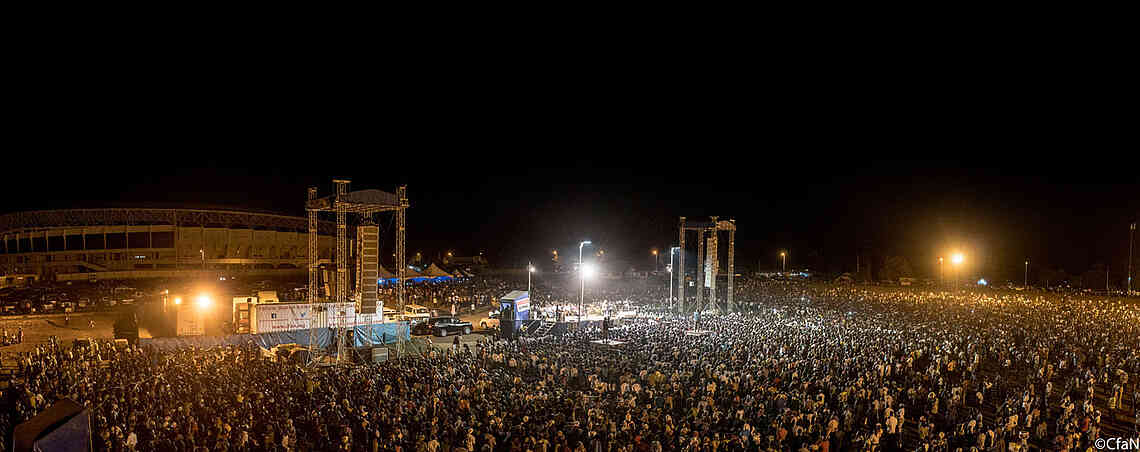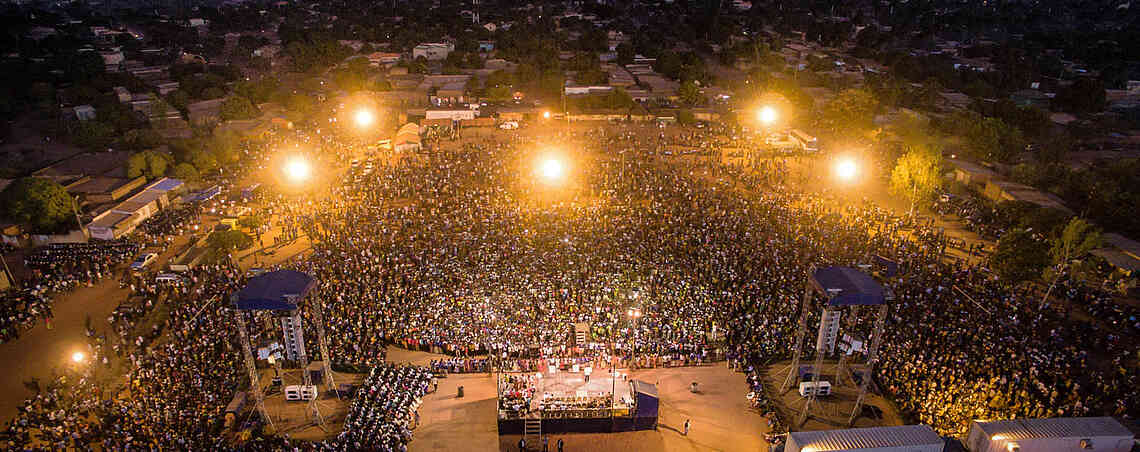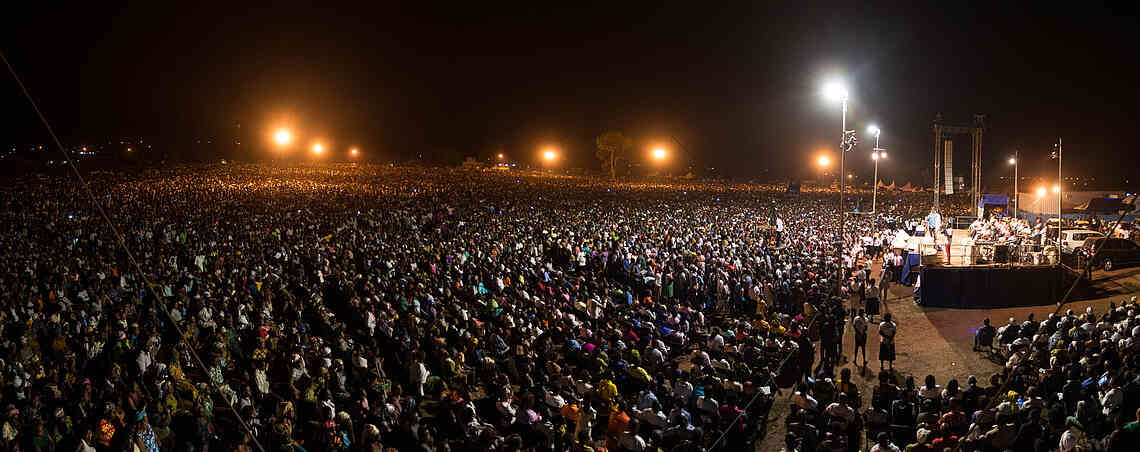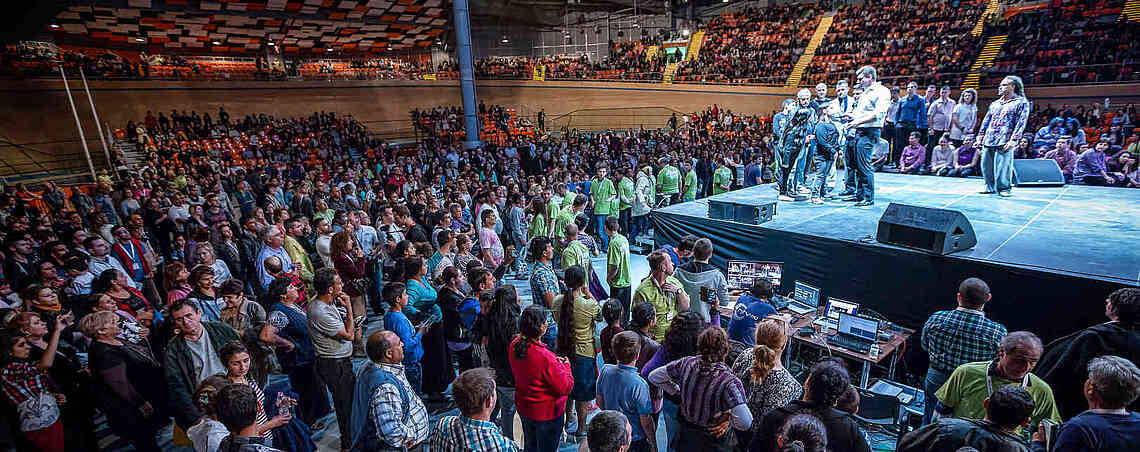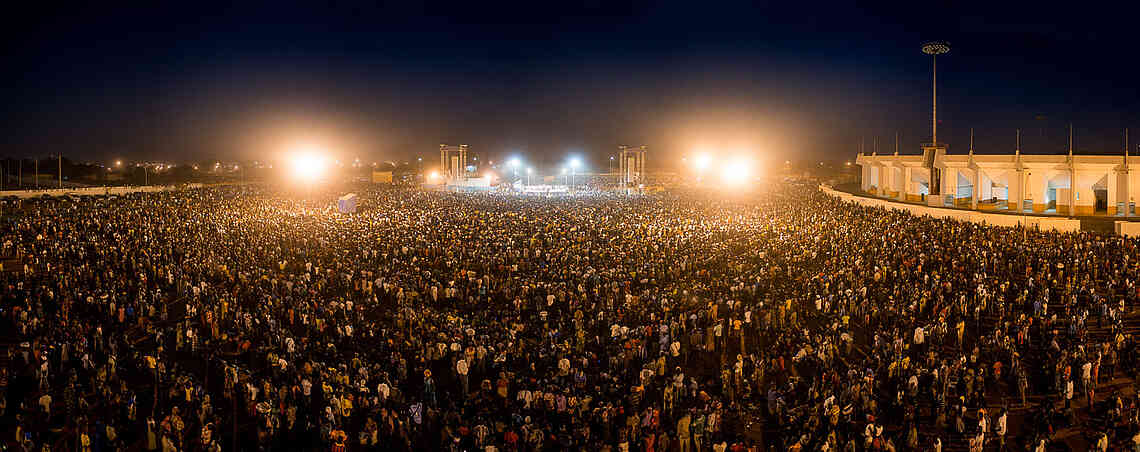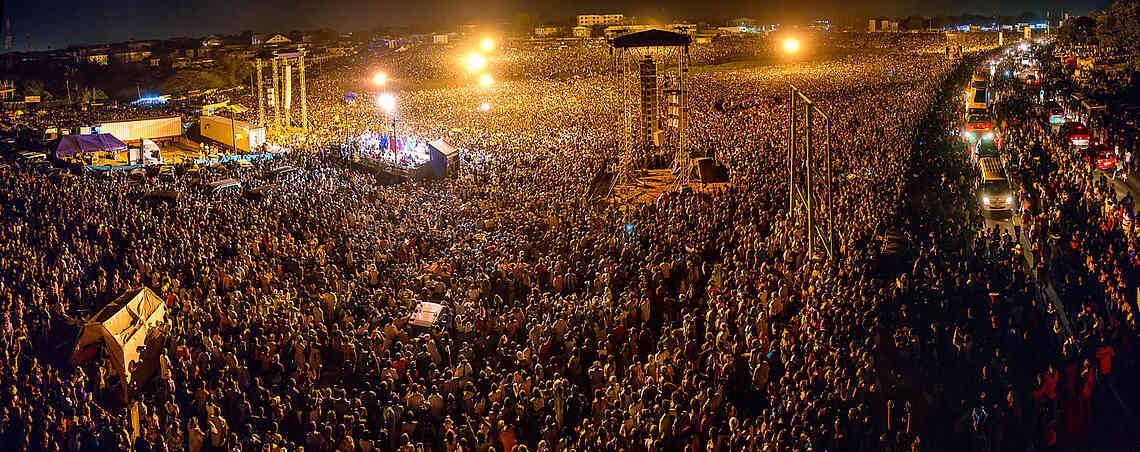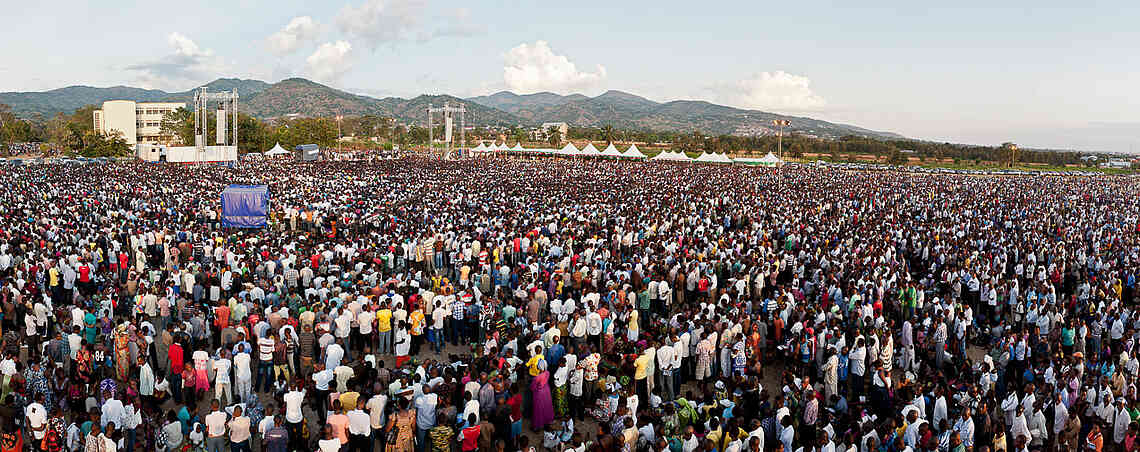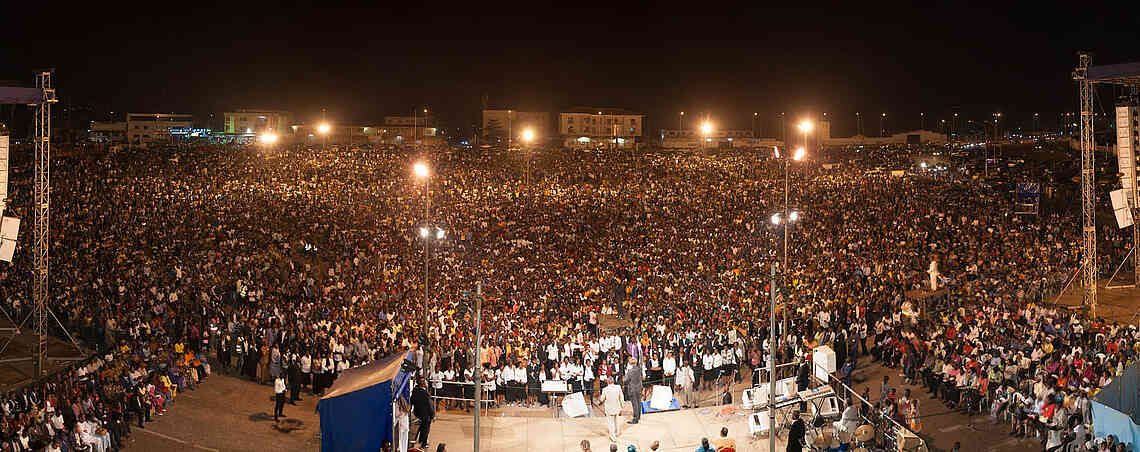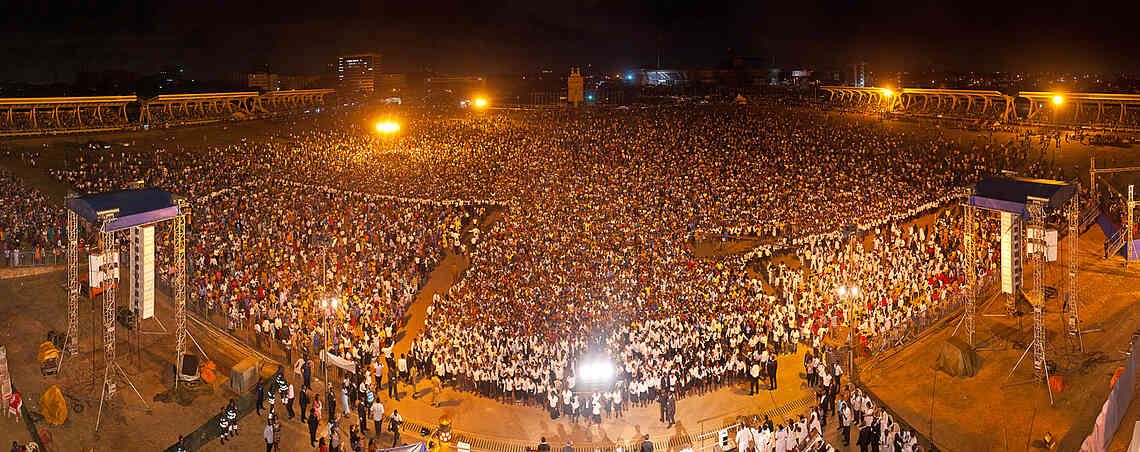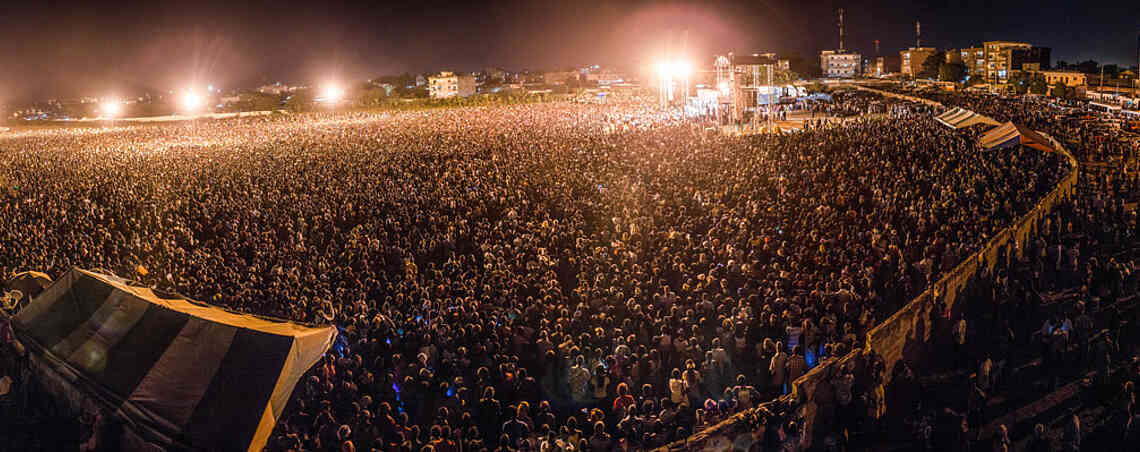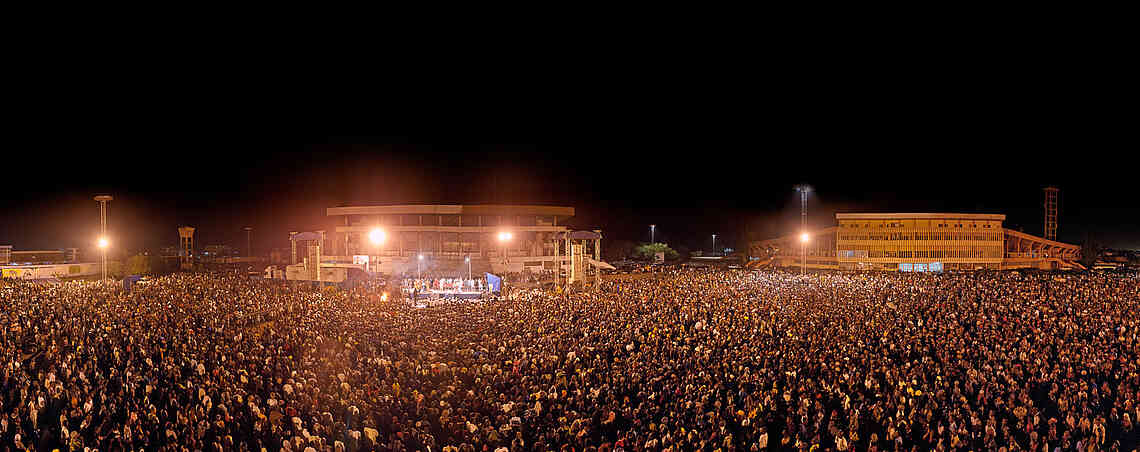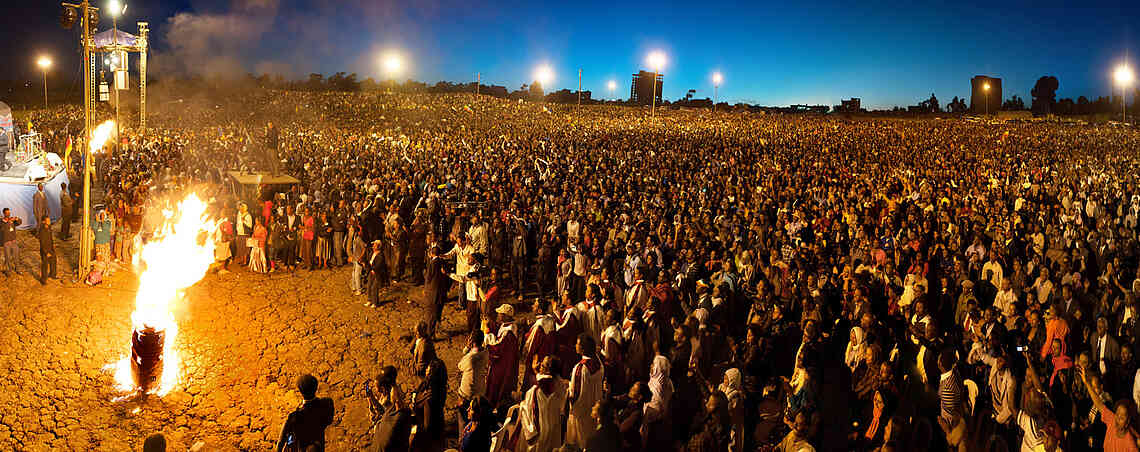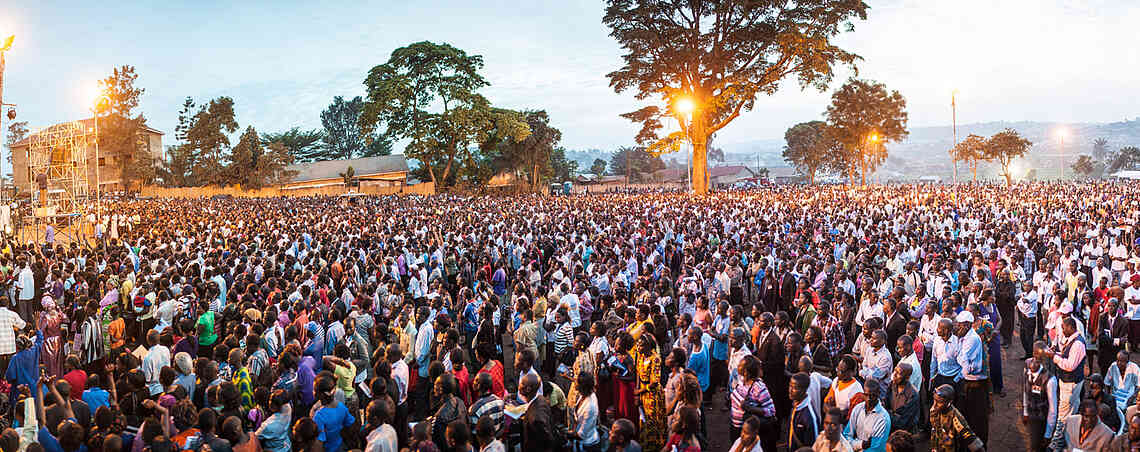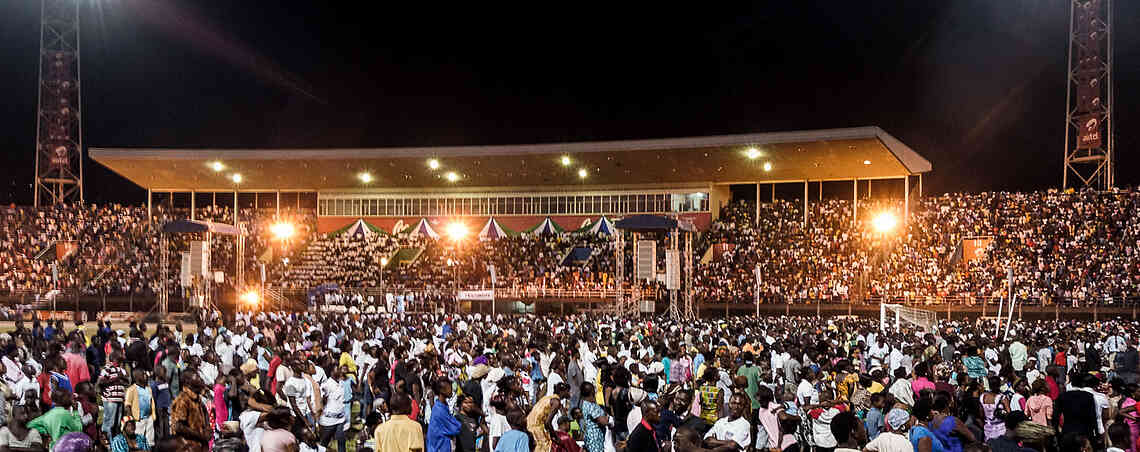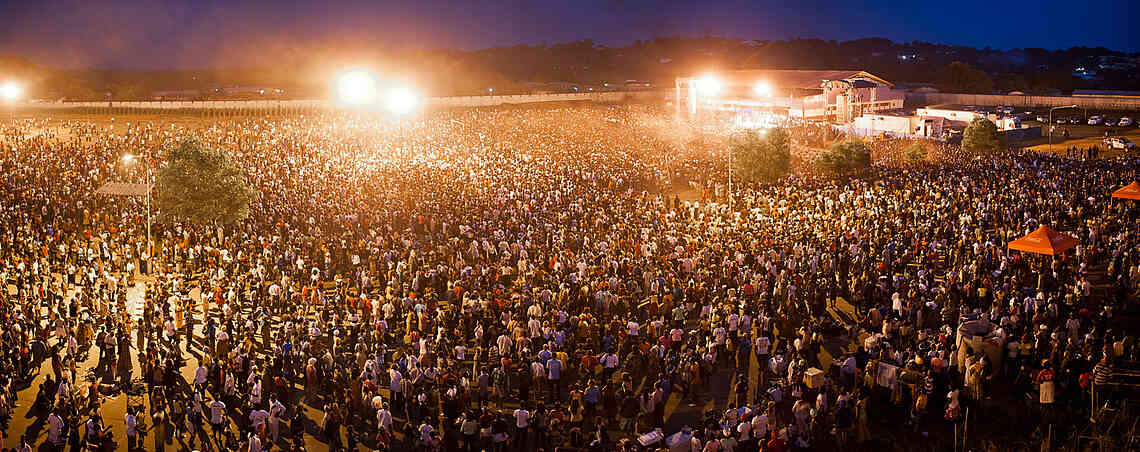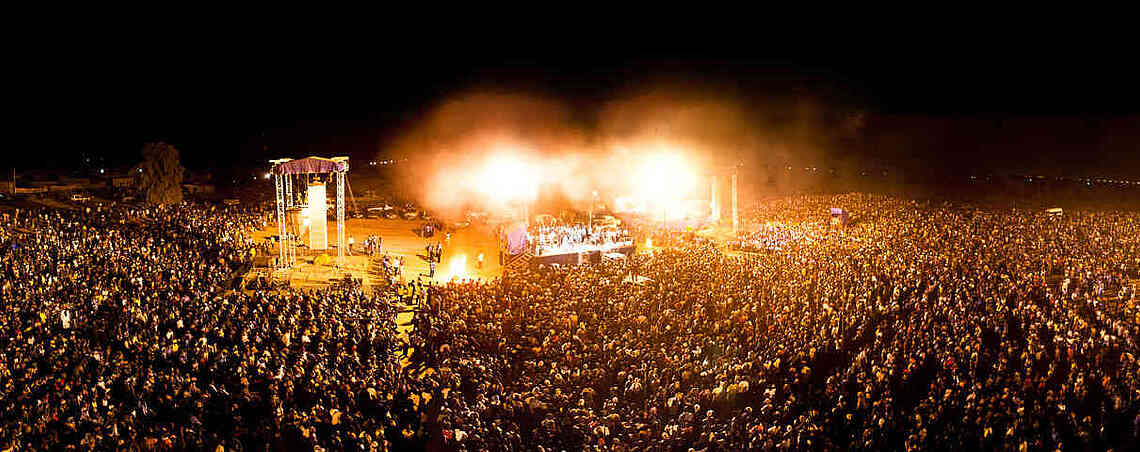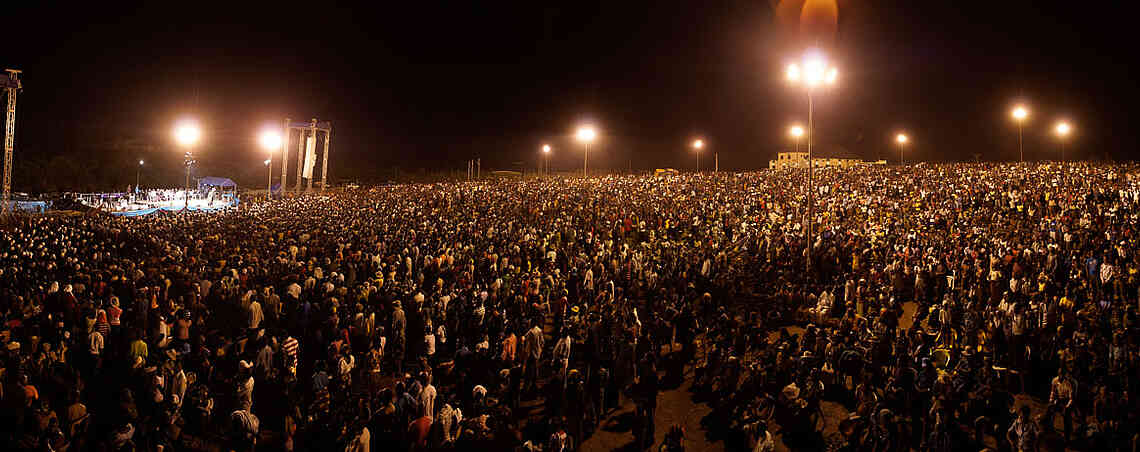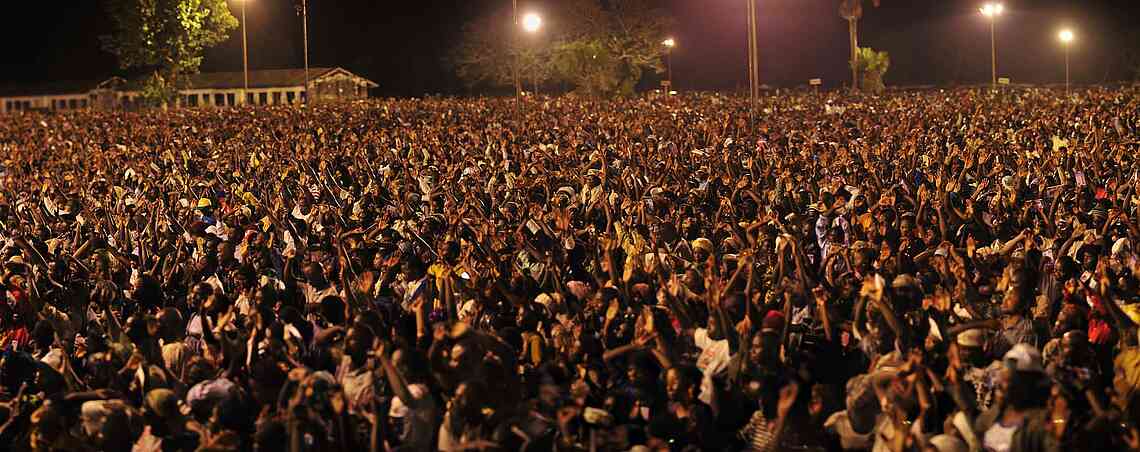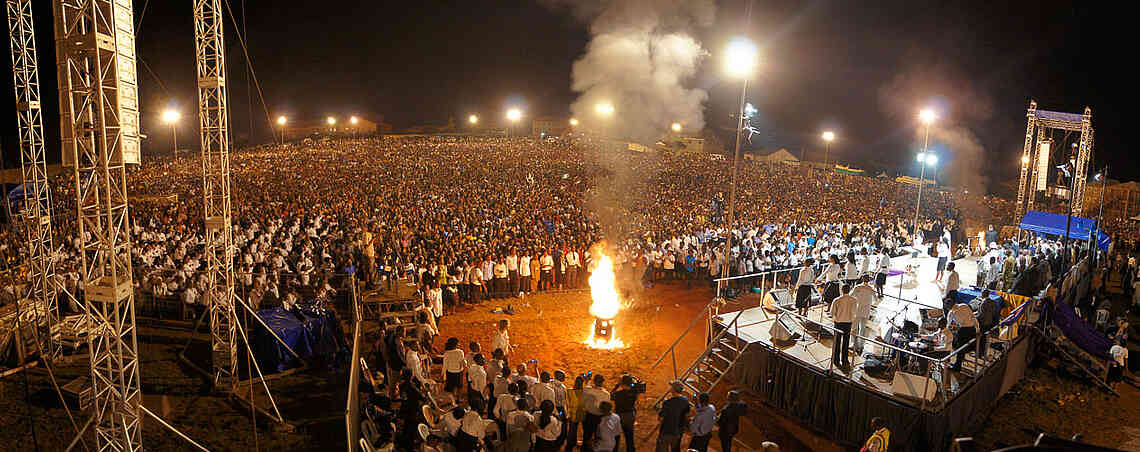
Why not here and now?
Miracles
As a missionary-evangelist who has worked on six continents and seen many amazing miracles, this is one of the most common questions people ask me: “Why do incredible miracles happen in Africa, or other third-world countries, but not in the western world?”
I have heard well-known and well-intentioned ministers give entire teachings about why God does not do such miracles in the West. I have even heard them use Reinhard Bonnke’s Gospel meetings (where I happen to preach) as examples of their theories. Some of the explanations are rational, describing in detail why it works this way. And I must admit, for a long time, I gave similar answers to this question when people asked me. But one day while reading God’s Word and praying, it suddenly occurred to me that all of these explanations were really just excuses for unbelief. In fact, the question itself reveals the problem.
God is the same in the western world as He is in Africa
Where did we get the idea that God does greater miracles in third-world countries than He does in the West? Simply by asking the question, many people have accepted its premise as fact – that God really does His most powerful works outside of the West. But on what data do they base this assumption? Where is the hard evidence for it? There is certainly nothing in Scripture to support it. And I can tell you from anecdotal experience – as one who ministers all over the world – that the power of God is the same everywhere. It is the same in the western world as it is in Africa, Asia or in any other country.
Recently I returned from a tour of the United Kingdom. Incredible miracles occurred in every service. These were not meetings held on a Campaign field in Africa. We held them in traditional cathedrals in Britain. Yet we saw amazing miracles – blind eyes opening, deaf ears hearing, tumors disappearing, and many parts of the body instantly healed.
Healed right out of her special shoe
One story stands out to me. A lady in one of the meetings told me that when she was three years old, she had a stroke that paralyzed the right side of her body. She had lived with the paralysis into her adult life. But that night, as I prayed for the sick, she felt the power of God come on her body. Something began to happen on her right side, and suddenly she realized her right arm could move. Then she realized her right leg could move. God’s power completely healed her.
But that was not even the most amazing part of the miracle. Because the paralysis began at such a young age, the lady’s right foot had stopped growing. It was shriveled up and stunted, requiring her to wear a small, special shoe on her right foot. But when God’s power came on her, she and her mother watched as her right foot literally grew to the same size as the left foot.
When she left the meeting that night, her right foot had outgrown the special shoe she had worn to the meeting!
Faith is the currency of God’s Kingdom
You simply cannot tell me that these kinds of miracles do not happen in the West. In fact, given the relative numbers, I have seen just as many healings in some places in the West as certain places in Africa – perhaps more.
So here is where the rubber meets the road. Hebrews 11:6 says, “He that cometh unto God must believe.” Reinhard Bonnke says it this way: “When you do business with men, you need money. But when you do business with God, you need faith!” Faith is the currency of God’s Kingdom. Listen to the psalmist’s insight into Israel’s difficulties in the wilderness. “How often they provoked Him in the wilderness, and grieved Him in the desert! Yes, again and again they tempted God, and limited the Holy One of Israel” (Psalm 78:40-41).
The Children of Israel had seen greater signs and wonders than any generation that lived before them. They knew that God was powerful, yet somehow they subjected God to a set of parameters and constraints rooted in their unbelief. The Bible says that God was provoked – even grieved – by the limitations they put on Him. They allowed doubt to become a self-fulfilling prophecy.
A self-fulfilling prophecy
Did you realize that doubt is prophetic? Words of unbelief can become a self-fulfilling prophecy! Again, remember Israel in the wilderness:
“Then [the Israelites] said to Moses, ‘Because there were no graves in Egypt, did you take us to die in the wilderness?’” (Exodus 14:11). That question of doubt later became their experience. “For the Lord had said of them, ‘They shall surely die in the wilderness.’ So there was not left a man of them, except Caleb the son of Jephunneh and Joshua the son of Nun” (Num 26:65). The Lord allowed their doubtful words to become their destiny.
Unbelief becomes a self-fulfilling prophecy
Even Jesus had to face this. When He returned to his hometown, “He could do no miracle there except that He laid His hands on a few sick people and healed them” (Mark 6:5). I can imagine what the locals asked each other: “Why do miracles happen other places, like Capernaum and Jerusalem, but not Nazareth?” It is because the unbelief in Nazareth was literally enough to limit what Jesus could do among them. Their unbelief had become a self-fulfilling prophecy.
So I would like to see the rise of a new breed of skeptics – skeptics that question uncertainty, doubt their doubts and mistrust unbelief. This is the kind of skeptic Jesus was. Mark 6:6 tells us that Jesus marveled at the Nazarenes’ unbelief. He could not believe that they did not believe!
Most Christians can easily believe that miracles occurred long ago, or that they will occur again in the distant future. (I have often heard Christians refer to the “great revival” that is still coming.) But they have difficulty believing God for miracles right here and right now.
It is just that simple
The devil does not mind if we have faith for another time and another place. But Hebrews 11:1 says, “Now faith is.” The one who comes to God must believe! It is just that simple.
The Bible says that Jesus Christ is the same yesterday, today and forever (Heb 13:8). His Word, His power and His promises are always the same. Many Christians today can testify to this. They are witnesses to God’s mighty power demonstrated right here and now.
The bottom line is this: there are no excuses. Stop buying into the devil’s lies. Stop limiting God with unbelief. Let us begin to agree with God’s Word instead of the enemy’s word. Let us stand on God’s promises until we receive everything He has for us, in Jesus’ name.
Daniel Kolenda


